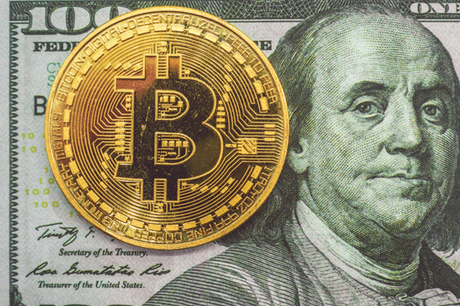Even though Bitcoin has gained quite the popularity these days, you may often wonder, "Why was Bitcoin even created?" To address this topic, we will give you a quick overview of the financial system in place when Bitcoin was established and the issues surrounding it.
To put it briefly, Bitcoin is the first cryptocurrency ever created. The idea behind the concept was to create a non-government-regulated currency that can gradually gain purchasing power in real-life markets as well. The goal of crypto today is to basically revolutionize digital currencies as we know them. That too, to such an extent that when you type "grocery stores in my area" or " escape rooms near me," you can find places where these currencies are accepted as modes of payment!

Have you thought about what happens to the money you deposit with a bank? Banks spend our funds on a variety of initiatives and provide loans to those in need. But what happens if the banks lose the money that people trusted them to protect?
"The Financial Crisis of 2008" is the answer. The Financial Crisis exposed banks' and other financial institutions' fundamental flaws. Following the Financial Crisis, individuals began to hope for a new monetary system that would eliminate the flaws of traditional currencies.
What occurred in 2008 amid The Financial Crisis?
People generally require confidence that their money will be secure since their residences may be robbed. They began to deposit their money in numerous banks after realizing the necessity for security. These banks started to attract consumers by providing a variety of deposit schemes.
In the United States, banks began to provide hazardous loans to individuals to attract new clients. As a result, banks were forced to deal with substantial loan defaults. Many banks failed and filed for bankruptcy due to people's inability to repay the money.
Some of these investments failed, and the banks lost all of the funds that their clients had entrusted to them. As a result, numerous financial institutions failed.
Due to widespread bankruptcy, the US government attempted to preserve certain financial institutions from failure by bailing them out. However, the banks misplaced the money that clients had deposited with them, leaving the customers with little recourse.
The money supplied by the government to the banks was then the money of the people, who had paid taxes. Customers around the nation were dissatisfied due to the American government's activities. Because the global economy is interrelated, the events in the United States impacted the rest of the globe. This put the global economy to a halt. The financial crisis brought to light the issues that come with having your money held by a central authority.
The origin of Bitcoin
People wanted a currency not controlled by a central authority after the Financial Crisis. When consumers place their faith in a bank, the bank loses their money. As a firefighting response, the government issued additional money. This lowered the value of money already in circulation.
There was always some unpredictability and uncertainty surrounding the fall in the value of people's money since the government had no maximum limit on the quantity of cash it could issue.
In 2008, an unidentified entity using the moniker Satoshi Nakamoto released a white paper describing the Bitcoin idea. Nobody knows the author's genuine identity or whether it's a single individual or a group of people. The report explained how Bitcoin would function. Finally, the cryptocurrency formally debuted on January 3, 2009.
Bitcoin addressed this issue by determining the maximum quantity of Bitcoins that may ever be in circulation. It also maintained the pace at which new Bitcoins would be created. Because of the coding utilized in its design, the maximum number and rate of production cannot exceed the established restriction. This code is also made public for simple verification, ensuring that no further Bitcoins are created.
In this manner, the value of each Bitcoin was solely determined by market supply and demand. It was free of any government meddling, such as when the government manipulates the value of a currency for different reasons.
Suppose we use our saved money to complete a transaction. In that case, we must rely on a third-party vendor (such as a bank) to authenticate and confirm our transaction. There's no assurance that the seller won't grow greedy and invest our money in unsafe ventures. By enabling users to deal directly with one another, Bitcoin has removed the need for third-party middlemen.
Simply establish a Bitcoin account (also known as a Bitcoin Wallet) on your computer or smartphone to keep your Bitcoins. This wallet functions more like a genuine wallet than a bank.
In this instance, you are your own banker, and your wallet, unlike conventional banks, cannot make choices on its own. Although multiple firms manage the wallets, the code used in their construction is made transparent and available to everyone. Customers may be confident that their funds will be protected.
Conclusion
Bitcoin began at 0.0001 USD and now has a value of 29,214.50 USD. As Bitcoin's popularity and acceptability rise, it has a bright future.
Invoices are currently being paid in Bitcoin by merchants from all around the world and across many sectors. It's also known as 'The Next Big Thing After the Internet' because of the problems it solves and the benefits it provides.
